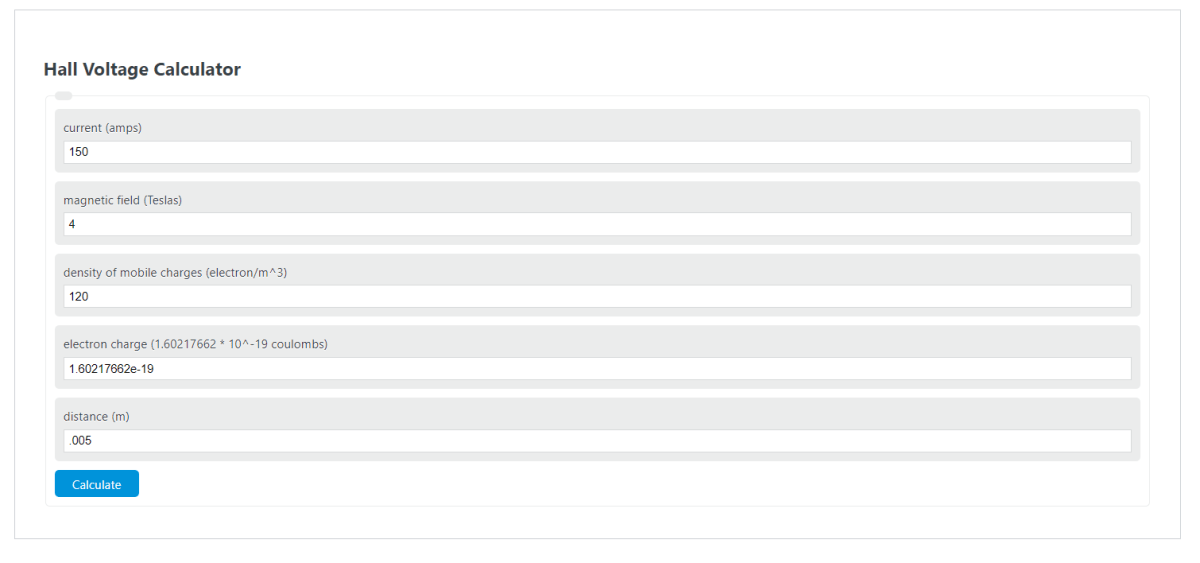Enter the current (amps), the magnetic field (Teslas), the distance (m), and the density of mobile charges into the calculator to determine the Hall Voltage.
- All Electrical Calculators
- Hall Coefficient Calculator
- Magnetic Flux Calculator
- Flux Density Calculator
Hall Voltage Formula
The following formula is used to calculate the Hall Voltage.
Vh = I*B/(n*e*d)
- Where Vh is the Hall Voltage (volts)
- I is the current (amps)
- B is the magnetic field (Teslas)
- n is the density of mobile charges (electron/m^3)
- e is the electron charge (1.60217662 * 10^-19 coulombs)
- d is the distance (m)
To calculate the Hall Voltage, divide the product of the current and magnetic field by the product of the density of mobile charges, electron charge, and distance.
How to Calculate Hall Voltage?
The following example problems outline how to calculate Hall Voltage.
Example Problem #1
- First, determine the current (amps). In this example, the current (amps) is determined to be 150 .
- Next, determine the magnetic field (Teslas). For this problem, the magnetic field (Teslas) is measured to be 4 .
- Next, determine the density of mobile charges. In this case, the density of mobile charges is found to be 120.
- Next, determine the distance. This is measured to be .005 m.
- Finally, calculate the Hall Voltage using the formula above:
Vh = I*B/(n*e*d)
Inserting the values from above and solving the equation yields:
Vh = 150*4/(120*1.602*10^-19*.005) = 6.24e21 (volts)
FAQ
What is the significance of the Hall Voltage in electrical engineering?
Hall Voltage is crucial in electrical engineering as it helps in the measurement of magnetic fields and the characterization of materials. It is used in Hall effect sensors to detect magnetic fields and in various applications such as speed detection, position sensing, and current sensing circuits.
How does the density of mobile charges affect the Hall Voltage?
The density of mobile charges directly influences the Hall Voltage. A higher density of mobile charges results in a lower Hall Voltage for a given current and magnetic field, as the Hall Voltage is inversely proportional to the charge density according to the formula Vh = I*B/(n*e*d).
Can Hall Voltage be negative?
Yes, Hall Voltage can be negative depending on the direction of the magnetic field and the type of charge carriers (electrons or holes) in the material. For electrons, which are negatively charged, the Hall Voltage is typically negative, while for holes, which are considered as positive charge carriers, the Hall Voltage can be positive.
